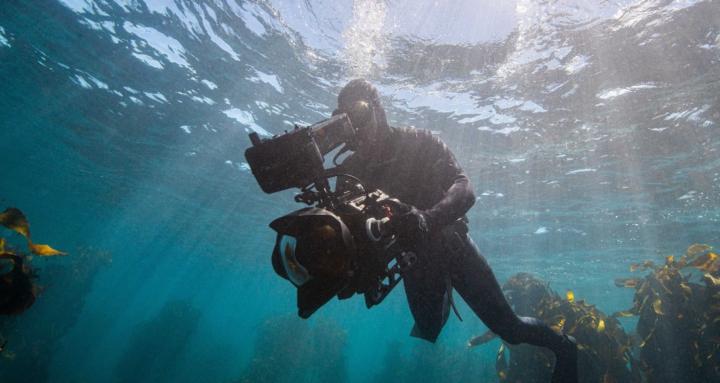Aug 8 (edited) • 💡 Insights
Why I Took a Dry Suit to 29°C Water (And What It Taught Me About Building Skills on Any Budget)
A student asked me how to become versatile enough to work in different environments without spending a fortune on exotic training trips.
My answer: "Start with what you can control at home."
Let me tell you about the time I packed a dry suit for Tanzania.
The water was 29°C.
But we were doing six to seven-hour immersions, sometimes six hours straight, and we weren't moving. The dry suit was actually perfect. I had a very thin undergarment, and it worked beautifully for those long, static dives.
That experience taught me something important: the best training often happens in the most unexpected places.
Here's what most people get wrong about building versatility:
They think they need to travel to Antarctica to learn cold water skills, or book expensive technical diving courses to master new equipment. But the fundamentals that make you adaptable? You can build those anywhere.
Fitness comes first.
It's the one variable you control in every environment. When you're cardiovascularly fit and strong, your ability to adapt to colder environments is going to be better.
And here's the thing - you can get incredibly fit in your house. No budget required.
Then push your local envelope. What kind of diving conditions can you access in your own environment? Really rough seas with a safe operator?
I've always been a fan of spearos because they often operate in rough sea conditions that a regular dive operation might not want to tackle due to the risk.
Master skills in easy conditions first. Dry suit diving is a whole skill in itself - it takes practice, and the buoyancy control. And you absolutely can do that in warm conditions.
It's about operating outside of your conventional bell curve. It's about finding opportunities. Even just snorkelling in super rough conditions from the shore is going to stretch your parameters.
The counter-intuitive truth: you don't need to spend a fortune on exotic locations to build the skills that matter.
When someone eventually pays you for that assignment, that's when you throw money at the problem - invest in every possible thing, including spares, because it's your responsibility to be fully prepared.
But the foundation? You build that with what you can control right now.
What's the most challenging condition you can access this weekend?
5:43
6
0 comments
powered by

skool.com/underwater-co-lab-9625
A private, invite-only community offering behind-the-scenes access to the Ocean Footage Mastery Program and direct connection with Roger Horrocks.
Suggested communities
Powered by
